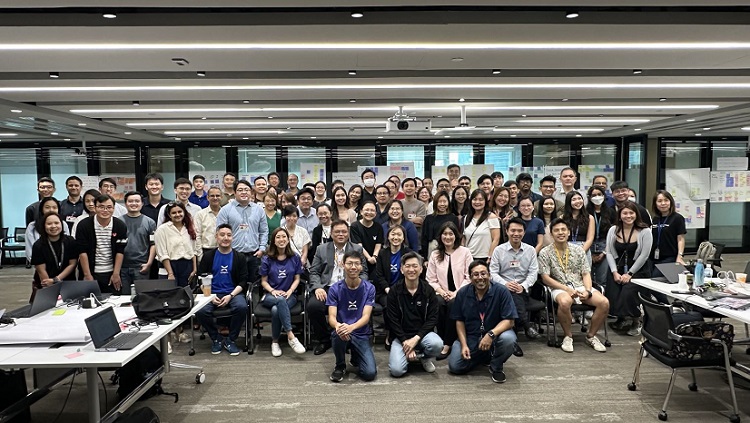
Over 160 participants from Singapore’s healthcare industry were involved in the GenAIus Challenge
Doctors at the Singapore General Hospital (SGH) found that it sometimes took them about an hour or more to review and summarise patient medical records, but with artificial intelligence (AI), it took less than a minute.
At workshops organised by national HealthTech agency Synapxe between April 8 and 23, about 160 Singapore healthcare professionals tried their hand at developing AI tools to improve patient care.
Other ideas being explored as part of the project include, for instance, using AI tools to create a messaging application that can send out timely updates to a patient’s next of kin, said Synapxe in a statement on April 25.
There were also non-clinical submissions, like healthcare subsidy assistants and call-centre chatbots to help officers provide personalised real-time responses to queries.
Although it is still in the early stages, shortlisted ideas will undergo a design and development stage, and could get rolled out in hospitals and healthcare institutions, the statement said.
So far, about 70 cases have been submitted for further evaluation.
For the first time, public healthcare professionals were asked to take part in the Synapxe “call-for-innovation” project using GenAI, in what is dubbed the GenAIus Challenge, a spokesman said.
SGH senior consultant Aaron Lee, 47, who specialises in anaesthesiology, was among those who attended the workshop sessions.
He said: “The involvement of healthcare workers is definitely something that I hope to see more of. If we are involved from the ideation process... the tech folks can help us to get what we want, and that can help us to get better products.
“While tech experts may have ideas, they may not know the best way that a product can fit into the clinician’s workload.”
During the workshop, participants were guided by experts from Synapxe technology partners like Amazon Web Services (AWS), Avanade and Microsoft or Google Cloud to develop their ideas.
Dr Lee and his team, who are all anaesthesiologists, sought to use AI tools to sort through documents – including those from the National Electronic Health Record, surgeon notes, patient X-rays and laboratory test results – and quickly summarise each case and identify key points.

